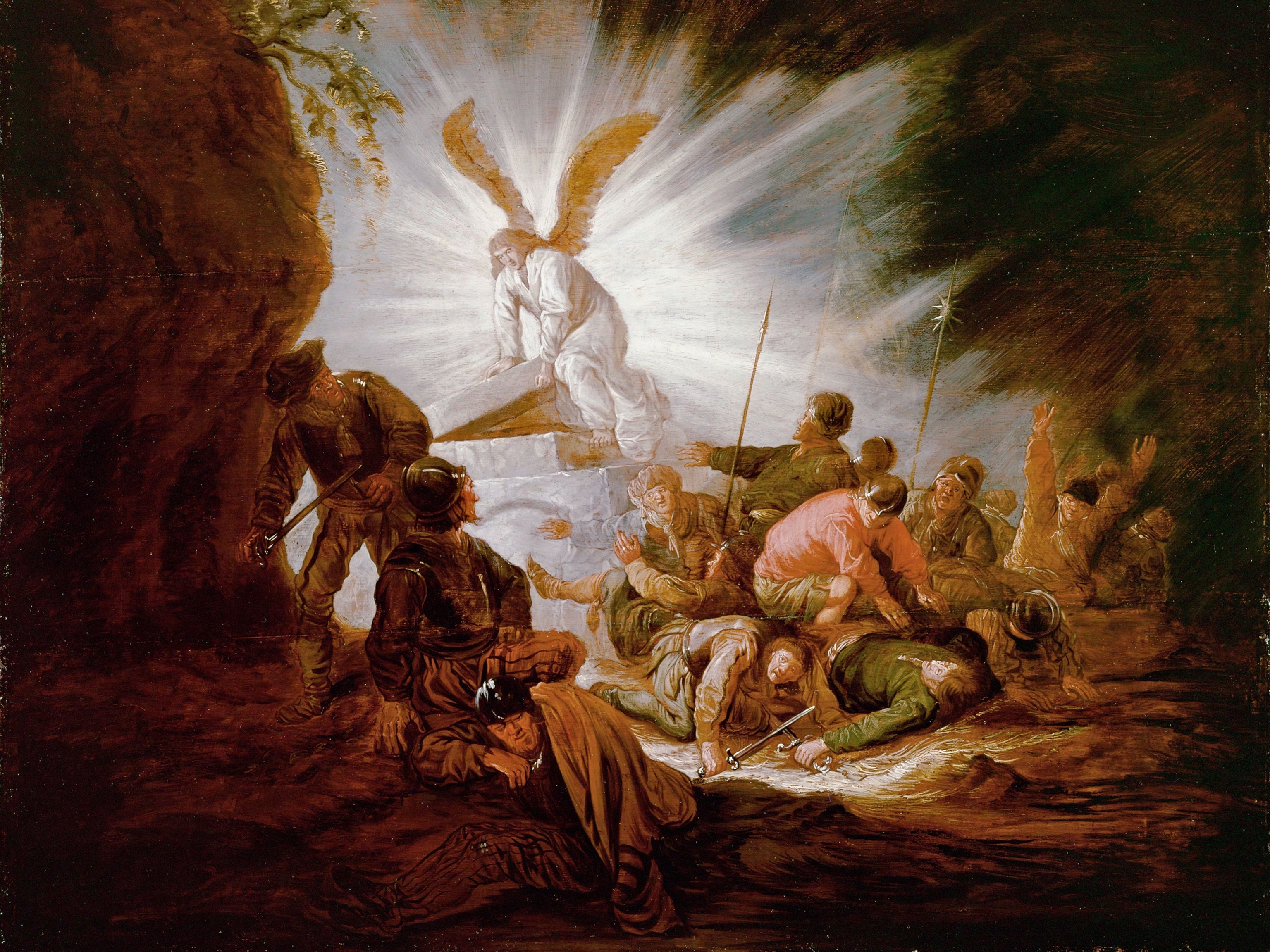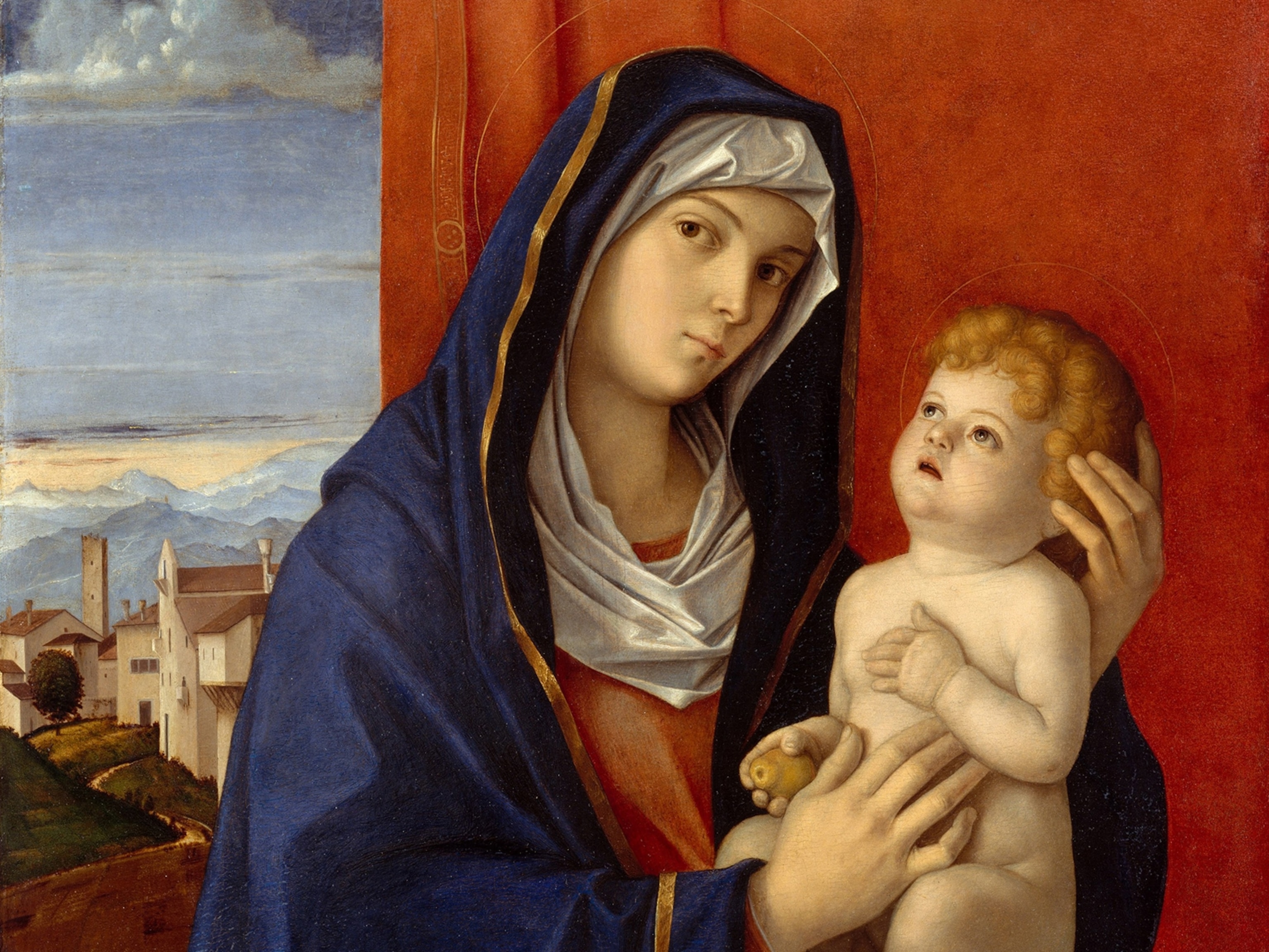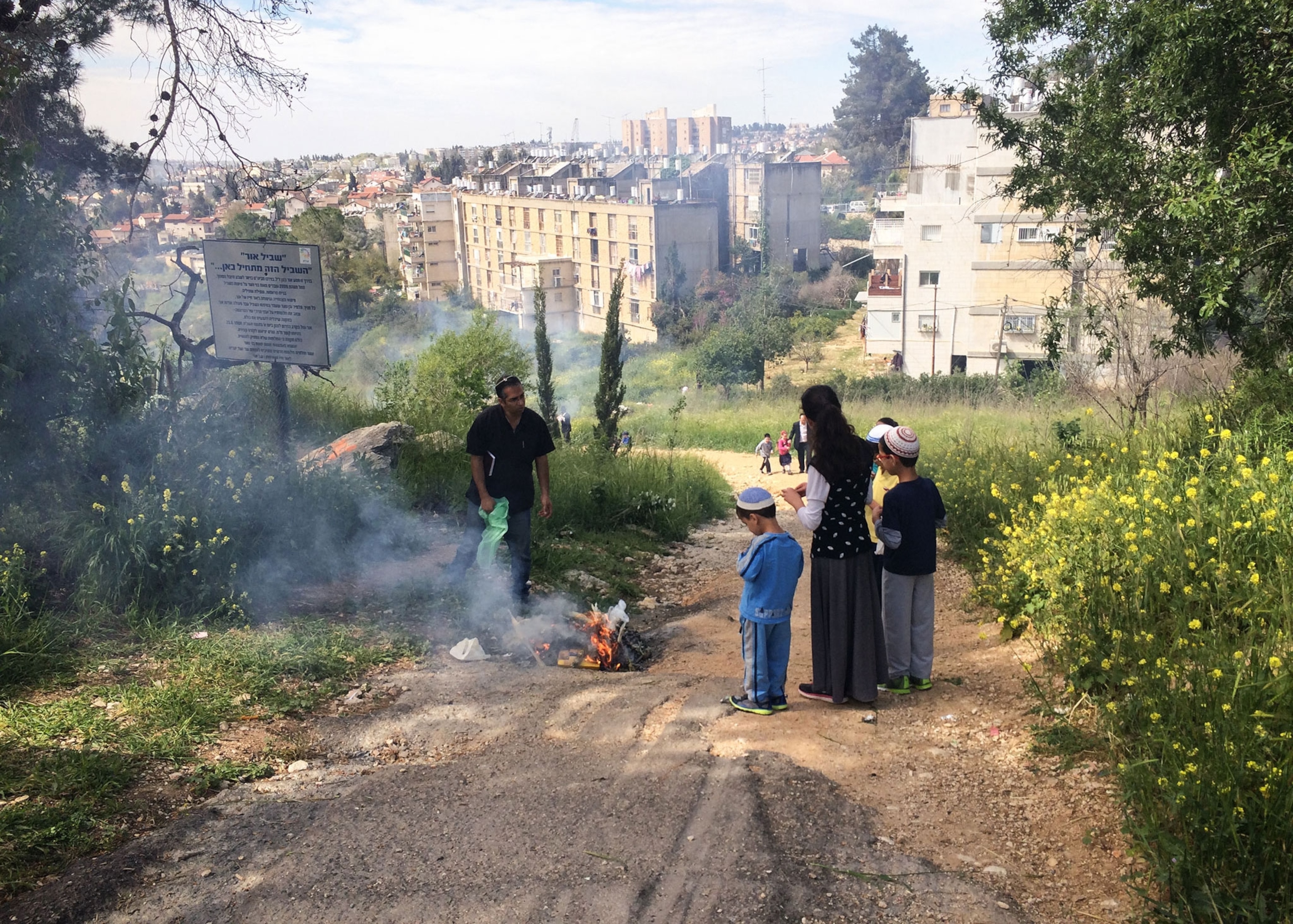
Hide That Bread; The Passover Police Are Watching
Security guards at building entrances may be a common sight in Israel, but for one week every year, they search bags for something much less dangerous than weapons—sandwiches.
During the week of Passover, observant Jews do not consume chametz, or leavened food. Since the holiday commemorates the story of the Israelites’ hasty departure from ancient Egypt, the rule prohibits any food made of grain and water granted time to ferment and “rise.” (See The Crummy History of Matzoh.) Religious people do not eat bread, cereal, cake, cookies. Some also avoid legumes, like beans, peas, lentils, although American views on this have recently expanded.
But Israel has no separation between religion and state. A special Chametz Law exists for Passover, which states: “A business owner will not put a chametz product on public display.”
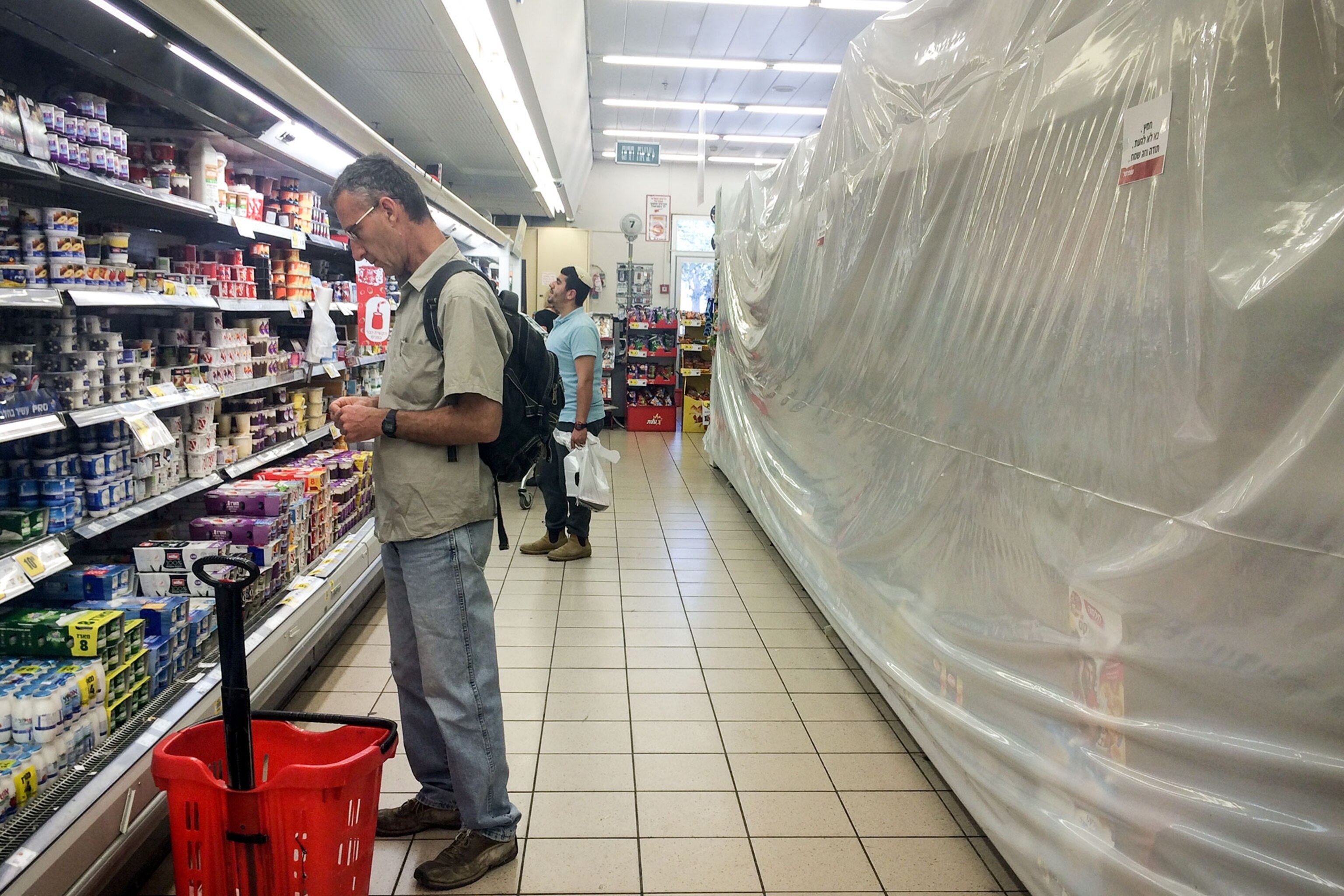
Many disappointed tourists during Passover week notice plastic covering grocery store aisles to hide cookies, beer, and other chametz-filled temptations. (Although the gluten-intolerant may find paradise in restaurants with special wheat-free menus, cafes serve matzoh crackers alongside omelets, and bakeries feature Kosher-for-Passover pastries.)
Why matzoh instead of bread? Professor of Hebrew and Judaic Studies at New York University and ordained rabbi Jeffrey Rubenstein says, “Matzoh is also called poorman’s bread or the bread of affliction. Richness and wealth is always associated with pride and haughtiness. So getting rid of leavened bread is symbolically or metaphorically getting rid of pride and other bad traits.”
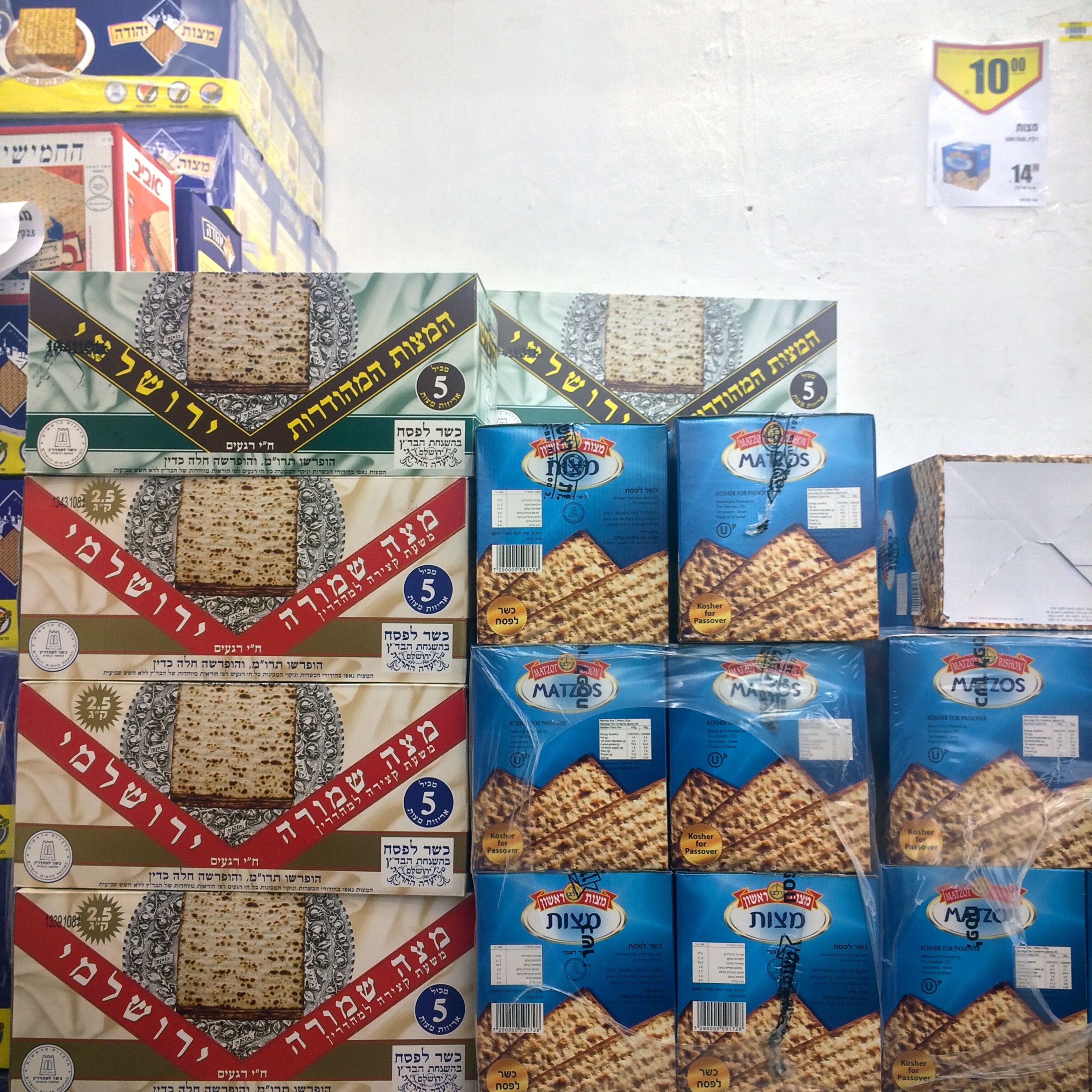
Observant Jews prepare long in advance to rid houses and cars of every last speck of chametz dust. Professor of Talmud at Hebrew University in Jerusalem Robert Brody explains, “Some are undoubtedly ignorant of the rules which are much more lenient; for some “it’s an expression of piety; for others it plays into their OCD or gets merged with spring cleaning.”
If a visitor strolls down the sidewalk the week before the holiday starts, people surround large pots of boiling water purifying dishes. In the final hours before holiday evening Seder, fires burn the last scraps of bread while the air in Jerusalem smells vaguely like burnt toast.
With so much Passover pressure sweeping the country, the question needs to be raised how many people actually keep kosher for the holiday? After all, 75 percent of Israel’s population is Jewish, while a quarter practices other religions, according to Israel’s Central Bureau of Statistics 2014. Of the Jewish population, only 67 percent follow the rules by skipping leavened food for the whole week, according to a survey by the Israel Democratic Institute. So, what about everyone else?
In Jerusalem’s Hadassah Hospital, which draws tourists to its spectacular Marc Chagall windows inside its synagogue, a sign hangs on the building entrance declaring the building chametz-free in multiple languages. Security checks bags at the door, and again in hallways deep inside where people toting bread are turned away. Never mind the Arabs of the city use this hospital, or that a sick person may just want a piece of toast.
Last year, a public park in northern Israel’s Afula municipality policed picnic baskets. After getting denied entry over lunch, a couple filed an anti-discrimination complaint. Their multiple petitions to the municipality were ignored.
Rabbi Rubenstein explains: “The question about public spaces has nothing to do with Jewish law, at least not a question about public spaces in a city or modern context. That said, in a close knit neighborhood or community many Jews would probably just not want the bread around. This is more in the area of etiquette or politeness—more good manners. It’s like you would not want pornography sold openly or read in an area where lots of kids were around.”
For one week every year, chametz becomes contraband. The country’s Passover bread policing seems more extreme every year. If Israel wants to be a democracy, other religions or secular people should be allowed to eat what they want. Nevertheless, the holiday week remains a fascinating time for a tourist to see inside the culture of Israel. Just head to an Arab-majority community if you want to find fresh pita and falafel, or just wait until the holiday ends Friday night.
Christine Blau is an associate producer for National Geographic Travel. Find her on Twitter @Chris_Blau and Instagram @christineblau.
